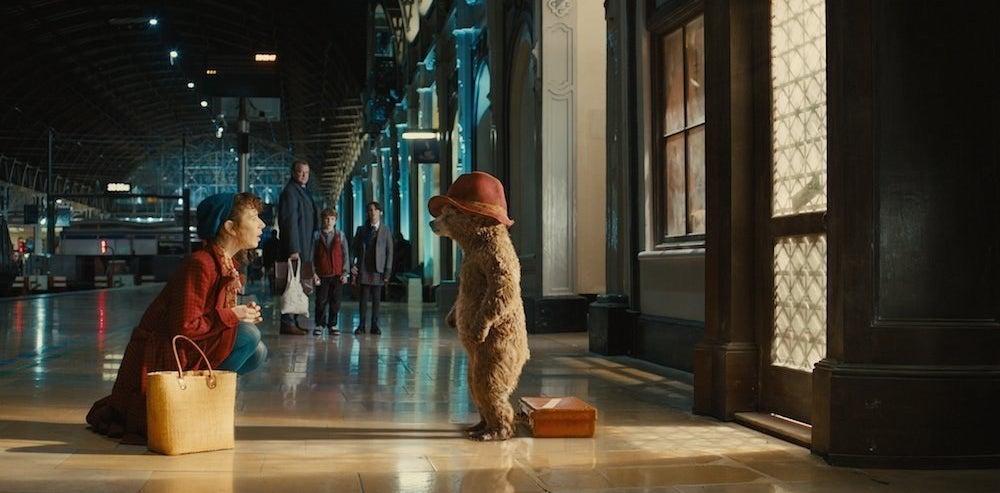
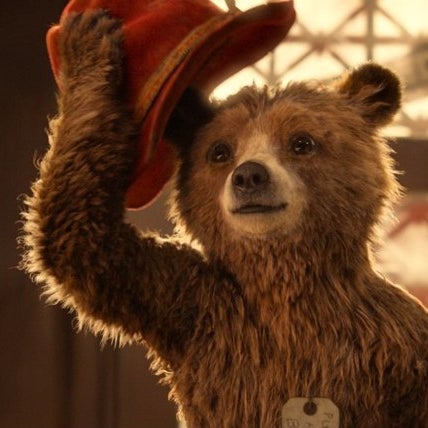
I hadn't expected Paddington to bring me to tears.
But it did, early in the film, during a perfectly understated but iconic moment from the children's books, written by Michael Bond, on which the movie is based. In the scene, on a train platform, Paddington (who's yet to be given that name) has made his way to London as a stowaway on a cargo ship — he was sent there by his aunt, who's headed to the Home for Retired Bears and can no longer take care of him.
Standing by the lost and found department with a sign around his neck reading, "Please look after this bear," Paddington waits, with hopeful patience, for someone to take him with them. People pass by without a second glance, in a hurry, indifferent. (The fact that Paddington's ursine, and can talk, is delightfully treated as unremarkable.) Then, the Brown family comes along, and, to Mr. Brown's (Hugh Bonneville) consternation — "Probably selling something," he mutters, trying to get his children to avoid eye contact — his wife (Sally Hawkins) stops.
It's a sequence of great poignance — quietly but devastatingly so, given Paddington's overall air of mild-mannered charm. In that second, the film connects its fictional foundling bear to the children who were evacuated during World War II, while also drawing a throughline to the present day by positioning the character as an immigrant in search of a new home, and wondering if the one he chose even wants him.
I bawled, and it wasn't the only time.
The deeply satisfying Paddington manages to remain true to the spirit of the books while giving some very contemporary context to their story of an orphaned South American bear who's taken in by the Brown family to live in their townhouse at 32 Windsor Gardens.
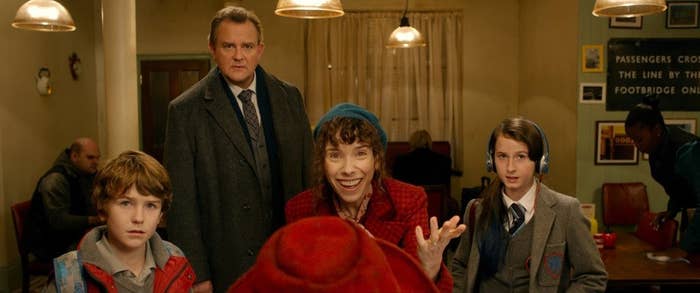
Paddington would be as comforting as giant bowl of pudding as a straightforward adaptation: He still has the hat, and the duffle coat, and the love of marmalade, as he should. In spirit, he's half bear and half extremely polite Englishman, his greatest weapon not teeth and claws but his hard stare, reserved for the ill-mannered.
But in explicitly making Paddington a refugee — in the opening scenes, his idyllic home is destroyed in an earthquake — and by folding in some typical anti-immigration language, Paddington gains unexpected power. If the original books felt vaguely tied into a colonial past, with Paddington hailing from "darkest Peru" (phrasing that's not discarded for the screen), the movie runs directly at and deliberately engages it. Paddington — which was directed by Paul King (The Mighty Boosh), who co-wrote the script with Hamish McColl — shows an old newsreel in which Paddington's aunt and uncle (voiced by Imelda Staunton and Michael Gambon) are "discovered" by a British explorer who's so won over by the bears that, to the ire of his colleagues, he goes home without claiming one of them as a specimen.
It's no accident that Mr. Brown, faced with the prospect of taking Paddington in for the night, grouses, "He's not our responsibility," and predicts that the bear will tell some "sob story" to get into his wife's good graces. Same goes for how the slinky, villainous taxidermist Millicent (Nicole Kidman, a hoot) convinces the Browns' nosy neighbor Mr. Curry (Peter Capaldi) to assist her, by talking about how soon other bears will come and disrupt everything with their "raucous, all-night picnics." Paddington himself doesn't instantly fit in amongst his new hosts, and there are cultural misunderstandings, many involving the bathroom.
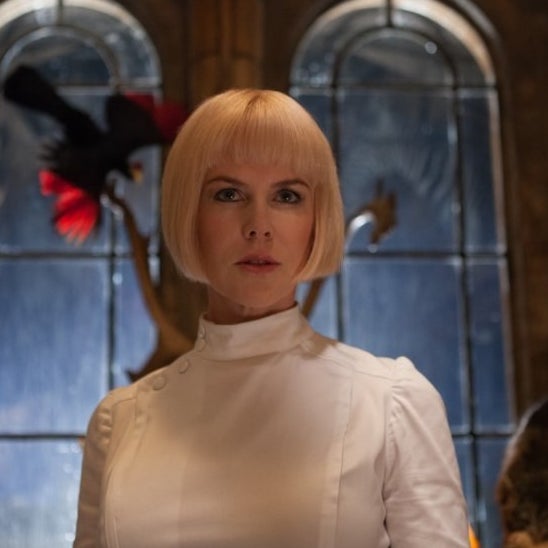
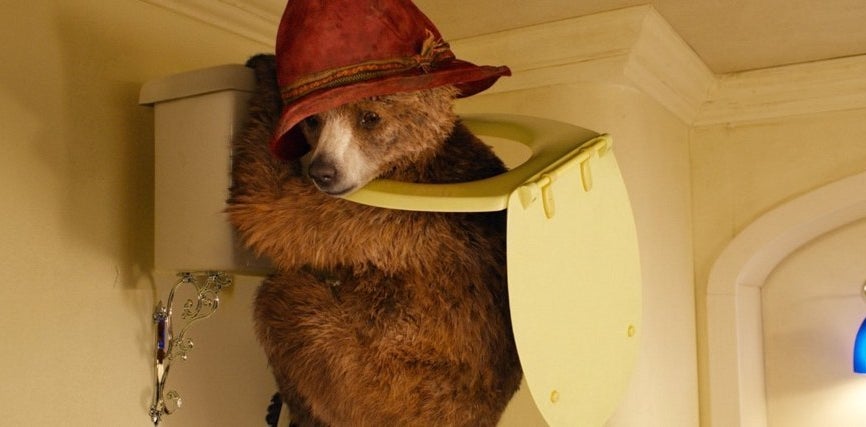
The unstated but undeniable relevance of Paddington is a pleasant surprise, considering the movie's rough start. Early promo images from the film were so unintentionally creepy, they launched a meme and hinted it was a kindertrauma candidate. Colin Firth, who was originally slated to voice Paddington, ominously dropped out halfway through production. But on screen, now voiced by Ben Whishaw, the CGI Paddington is adorable and a little bit shabby at the edges, like a well-loved toy.
Despite some rote kiddie movie touches — like the use of James Brown's "I Feel Good" to show that a character is, yes, feeling good, and the use of Steppenwolf's "Born to Be Wild" to indicate that characters are, yes, acting wild — the otherwise witty Paddington's main muse seems to be Wes Anderson. Touches of Anderson's signature nostalgic whimsy are all over scenes like the one in which a dollhouse in the attic opens to reveal a cutaway of the Brown household, daughter Judy (Madeleine Harris) learning Chinese in her room, while son Jonathan (Samuel Joslin) sits in front of the space-themed decor of his room. The attic of 32 Windsor Gardens, a bustling, bright house on a cozy street, becomes Paddington's, and if he sometimes causes havoc, it's never intentional.
While Paddington is a movie about a cute talking animal and the hijinks he never means to engage in, the immigrant theme is a steady one throughout, if always done with a light hand. And in taking as incredibly English a pop culture figure as Paddington Bear, and giving his story a gentle, but unmistakably progressive tilt, Paddington can feel downright subversive. "In London everyone is different, and that means anyone can fit in," Paddington finally muses. It's OK to shed a few happy tears.
